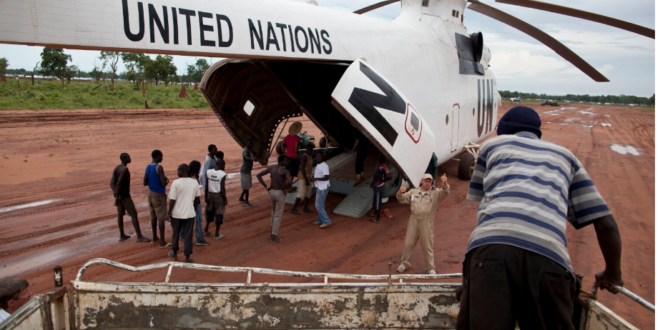Muhamad yehia
UNITED NATIONS (AP) — The United Nations released $100 million on Friday for humanitarian emergencies in 10 countries in Africa, the Middle East, Asia and the Caribbean.
Acting U.N. humanitarian chief Joyce Msuya said a lack of funding in these countries is preventing aid agencies from providing life-saving assistance, “and that is heart-wrenching.”
More than one-third of the new funding from the Central Emergency Response Fund known as CERF will go to Yemen, where a civil war is now in its 10th year, and Ethiopia, where government forces are fighting several rebel groups in its regions as well as ethnic-related insurgencies. Yemen is getting $20 million and Ethiopia $15 million.
Humanitarian operations in countries engulfed in years of conflict and displacement, exacerbated by climate shocks will also be getting funds: Myanmar ($12 million), Mali ($11 million), Burkina Faso ($10 million), Haiti ($9 million), Cameroon ($7 million) and Mozambique ($7 million)
So will two countries suffering severe food insecurity from an El Niño-induced drought and flooding, Burundi ($5 million) and Malawi ($4 million)
This was CERF’s second release of $100 million in emergency funding for humanitarian emergencies this year. In February, that money went to Chad, Congo, Honduras, Lebanon, Niger, Sudan and Syria.
But the U.N. Office for the Coordination of Humanitarian Affairs, known as OCHA, which manages CERF, said the $200 million released this year is the lowest amount in the last three years, “underscoring the growing gap between humanitarian needs and the donor funding CERF receives to meet them.
This year, the humanitarian community appealed for $49 billion to reach 187 million people in crises worldwide but has received just 29%, leaving a $35 billion gap, OCHA said.
In addition to releasing funds to the 10 countries on Friday, the U.N. and its partners have launched emergency appeals to reach 14.5 million people in southern Africa affected by El Niño: Zambia, Zimbabwe, Mozambique and Malawi.
 موقع وجه أفريقيا موقع وجه أفريقيا هو موقع مهتم بمتابعة التطورات في القارة الأفريقية
موقع وجه أفريقيا موقع وجه أفريقيا هو موقع مهتم بمتابعة التطورات في القارة الأفريقية



